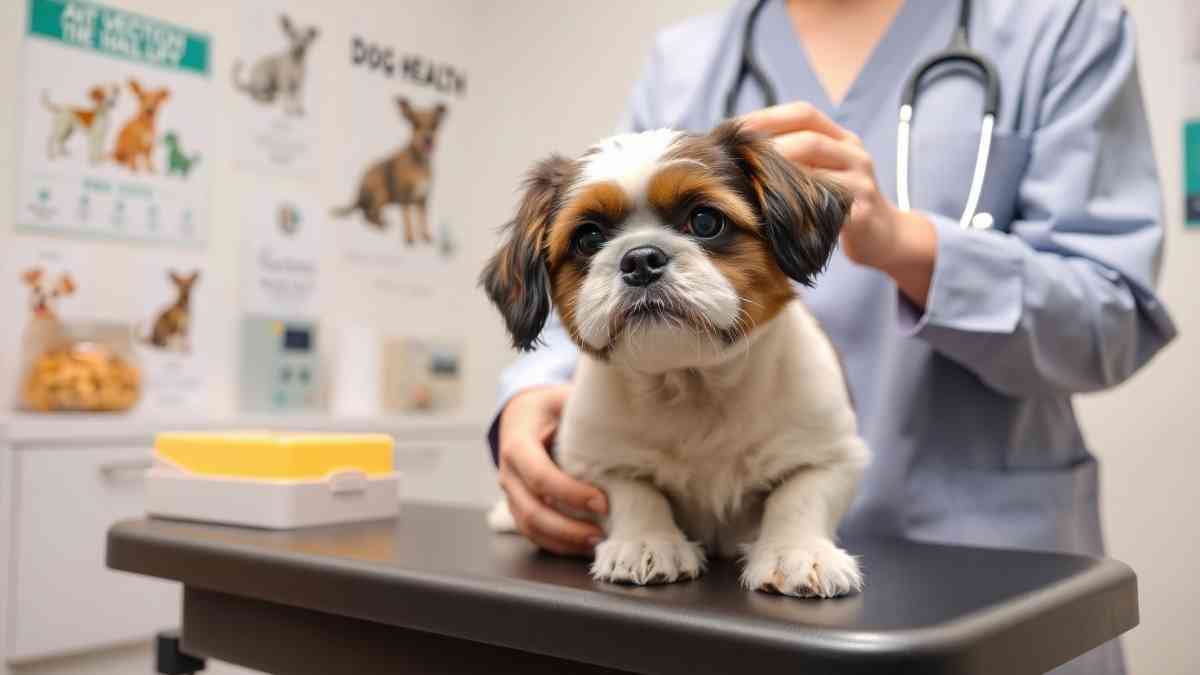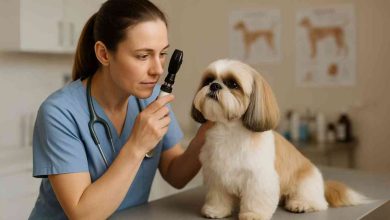When Should You Take Your Shih Tzu to the Vet? Signs You Shouldn’t Ignore

Shih Tzus are one of the most beloved companion breeds in the world. With their playful personalities, affectionate nature, and adorable faces, it’s no wonder they are a popular choice among dog lovers. However, as with any breed, understanding their health needs is essential. Knowing when to take your Shih Tzu to the vet is not just about emergencies—it’s about proactive care, recognizing subtle signs of illness, and ensuring your dog lives a long, healthy life.
What Does “When to Take Shih Tzu to Vet” Mean?
This question isn’t just about responding to visible injuries or sudden illness. It means being attuned to your Shih Tzu’s overall well-being and recognizing when something is off—whether it’s a small behavioral change, a shift in eating habits, or physical symptoms. Understanding the right time to visit the vet, or more specifically, knowing when to take Shih Tzu to vet, includes recognizing both routine care needs and warning signs of more serious conditions.
The Importance of Vet Visits
Unlike many breeds, Shih Tzus are brachycephalic, which means they have flat faces that make them prone to specific respiratory issues. Additionally, their compact size, long coat, and prominent eyes make them vulnerable to other health challenges like eye infections, dental disease, and joint problems. Regular check-ups with a trusted veterinarian are critical in managing these risks early.
Routine Vet Schedule by Life Stage
In the puppy stage (up to 6 months), your Shih Tzu needs vet visits every 3 to 4 weeks for vaccinations, deworming, and early health assessments. From 6 months to 7 years (adulthood), annual wellness exams are typically enough unless there are symptoms. After age 7 (senior stage), biannual visits are highly recommended. These routine visits help identify early signs of chronic illnesses, monitor weight, and keep vaccines and preventives up to date.
General Signs That Warrant a Vet Visit
There are common signs that may not be emergencies but definitely justify a vet consultation. If your Shih Tzu has sudden changes in appetite or thirst, becomes lethargic, or shows behavioral shifts like hiding or aggression, these are warning flags. Likewise, unusual stool, limping, coughing, or excessive licking may signal underlying issues. These symptoms can be easy to dismiss, but they often indicate discomfort or illness. Understanding when to take Shih Tzu to vet for such early signs can prevent bigger problems down the line.
When It’s an Emergency
Some health problems require immediate veterinary care. Shih Tzus, due to their facial structure, are at high risk of respiratory distress. If your dog is panting heavily without exertion, has a blue tongue, or collapses, get to the vet immediately. Vomiting or diarrhea, especially if accompanied by blood or lasting more than 24 hours, is another emergency situation. Other red flags include seizures, loss of consciousness, eye injuries, or a swollen abdomen, which could indicate bloat or internal bleeding. When in doubt, it’s always better to err on the side of caution.
Subtle but Serious Symptoms
Shih Tzus are resilient dogs, but they often hide their pain. This makes subtle symptoms even more important. Persistent scratching or paw chewing may seem harmless but can suggest allergies, skin infections, or anxiety. Chronic bad breath is a key sign of periodontal disease, which can lead to more severe health problems if left untreated. Changes in urination, especially if your dog starts having accidents indoors, could point to urinary tract infections or kidney issues. Paying attention to these cues will help you identify when to take Shih Tzu to vet for a professional diagnosis.
Breed-Specific Health Concerns
Shih Tzus are predisposed to several chronic and genetic conditions. Brachycephalic airway syndrome can make breathing difficult, especially in warm weather or during exercise. If your Shih Tzu snorts, gags, or breathes noisily, it might be more than just a quirk. Their large, exposed eyes are also prone to ulcers and infections, requiring prompt attention. Luxating patella, a condition where the kneecap slips out of place, can cause intermittent limping and discomfort. Additionally, their folded skin can trap moisture, leading to bacterial or yeast infections. Identifying these issues early means treatment is more effective and less invasive.
What Happens at the Vet
A typical vet visit involves a thorough physical exam, including checks for dental health, skin condition, eye clarity, joint mobility, heart sounds, and lung function. The vet may ask about your dog’s diet, behavior, energy level, and bathroom habits. Routine diagnostics like blood tests, urine analysis, or x-rays might be recommended depending on age and symptoms. For Shih Tzus, regular dental evaluations and eye assessments are especially important.
How to Prepare for the Visit
Preparation can make the vet experience smoother for both you and your Shih Tzu. Bring any medical records, vaccination cards, and a symptom journal if you’re noticing changes. If your dog is anxious, consider using a calming spray or comfort item during the trip. Avoid feeding your pet right before the appointment unless necessary, and be ready to answer detailed questions about diet, habits, and recent activities.
Preventive Care at Home
While your vet is an essential partner in your Shih Tzu’s health, you can do a lot at home to prevent problems before they start. Regular grooming helps you detect skin issues early. Brushing their teeth a few times a week reduces the risk of dental disease. Monitoring weight, keeping up with flea/tick treatments, and offering high-quality food all contribute to overall wellness. Providing mental stimulation and exercise also supports emotional and physical health.
Benefits of Timely Vet Care
When you respond quickly to health issues or maintain a regular vet schedule, you reap several benefits. Early treatment is typically less expensive and more effective, reducing the need for surgery or long-term medication. Your Shih Tzu will enjoy a higher quality of life, with less pain and more comfort. Importantly, regular vet care extends your dog’s life expectancy. Being proactive with health not only protects your pet but also strengthens your bond. Knowing when to take Shih Tzu to vet is a core part of responsible ownership.
Conclusion
Your Shih Tzu depends on you to be observant, responsive, and proactive. Recognizing the right time to visit the vet can make the difference between a minor issue and a major health crisis. By learning to spot symptoms, scheduling regular check-ups, and investing in preventive care, you ensure your companion has a long, joyful life. Don’t wait for symptoms to worsen—trust your instincts and seek professional guidance when something feels wrong.
Your Shih Tzu can’t speak, but their body is always telling you something. Make sure you’re listening.
Protect your Shih Tzu’s health—don’t ignore the warning signs!




